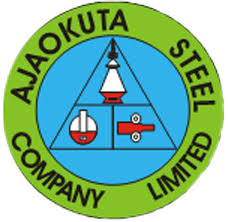The News Agency of Nigeria (NAN) recalls that, according to a 2024 report by BudgIT’s accountability platform, Ajaokuta’s financial burden has continued to grow, with about ₦1.11 billion spent in the past two years.
The D-G listed the challenges of the steel company to include a huge financial burden, mismanagement, corruption, and a disconnected value chain infrastructure.
According to him, Nigeria has invested over eight billion U.S. dollars in the Ajaokuta project over a period of more than 40 years.
He said that persistent mismanagement and policy failures derailed the project, as funds were misappropriated and concessionaire deals failed, citing the Japanese Kob Steel and India-based Global Steel Holdings Limited (GSHL) as examples.
Asuquo explained that the ASCL was burdened with a disconnected value chain infrastructure, as the iron ore mines at the National Iron Ore Mining Company (NIOMCO) in Itakpe, Kogi, remained non-operational.
“Rail line for transporting ore from Itakpe to Ajaokuta was delayed, vandalised, it was only completed and inaugurated in 2020.
“Obsolete technology and degraded equipment because most of the installed machinery has degraded over decades and the plant lacks modern energy efficient steel making technologies.”
He also noted that local community displacement remains unresolved as 13 villages were displaced when the plant was built.
According to Prof. Asuquo, the way forward is to rebuild the integrated supply chain and adopt modern mini-mill technologies.
He recommended shifting from large-scale blast furnaces to compact strip production (CSP), a cheaper, more energy-efficient technology that can be built and made operational more quickly.
Other recommendations he made included adopting private sector concessions, which entailed a complete shift from government management to strategic private investors with proven expertise.
“The way forward includes-manufacturing and pulsed revival of the plant, community and civil society engagement through (ESIA) Environmental and Social Impact Assessment.
“It (ASCL) can be used as an industrial park and free trade zone,“ he said.
He noted that Nigeria’s key legacy steel assets were mostly underutilised and equipped with obsolete machinery, stating that revitalising them required policy and institutional reforms alongside strategic public-private partnerships.
The D-G listed other measures to include infrastructure and energy improvements; research, development and innovation; human capital development; raw materials exploration and processing; and sustainable financing mechanisms.
“Revitalising Nigeria’s legacy steel assets is a national imperative. With political will, coherent policies, private sector collaboration, and sustained investment, the steel sector can become a key driver of industrialisation and economic transformation,“ he said.
The theme of the summit is Rebuilding and Consolidating Nigeria’s Steel Industry: Collaborative Action for Sustainable Growth and Global Competitiveness.



